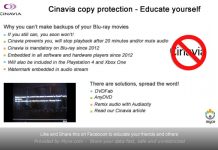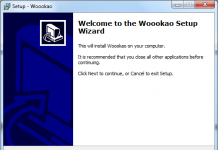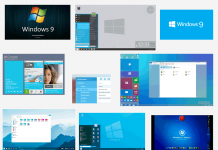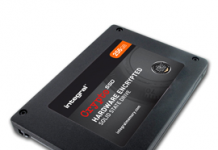One of the largest Stereo magazines names CdFreaks as the authority on breaking Cd Audio Copy Protection. They even quote one of our CdFreaks members postings. The Stereophile writers & readers are very concerned about audio copy protections that degrade the sonic performance of an audio cd in any way. Read the article & post comments below.
Article:
US: INSIDE YOUR PC
Jon Iverson
There appears to be nothing more important to today's music business than controlling the distribution and use of digital content on the Web and in the home. Proprietary schemes to prevent or control the use of audio files have be-come hot commodities and valuable assets for many companies. Liquid Audio recently announced that the US Patent Office has awarded the company patent 6p19,634 for its watermark technique, used for distributing secure digital music files.
Liquid Audio says, 'This newly patented invention covers a technique for embedding and detecting water-mark data within an audio signal in a computationally efficient way. The optimum level for the watermark signal is determined using mathematical algorithms that require significantly less processing power than other techniques. This greatly increases the watermark decoder's ability to detect the water-mark inside recorded music."
The new watermark patent is for one of several music-distribution technologies developed by Liquid Audio. The company was awarded a patent last December for a territory-restriction technology that enforces regional copy-rights by determining a user's location based on the geopolitical territory of the user's Internet Protocol (IP) address.
As bad a concept as watermarking is, deliberately messing with the integrity of the data on a CD is something else. In what is intended to have the biggest impact yet on the thriving 'rip, mix, burn" lifestyle, Macrovision revealed in July that several record labels have been secretly incorporating its copy-protection system in new CD releases since March 2001. The process, called SafeAudio, is a Macrovision registered trademark and is intended to prevent the copying of CDs, or tracks &am CDs, onto CD-R discs and computer hard drives. The technology was developed jointly by Macrovision and TTR Technologies.
While SafeAudio is not intended to prevent copying entirely, Macrovision claims that the process adds a 'special type of distortion" to the CD during the mastering process at CD manufacturing facilities, which then reveals itself as periodic 'clicks and pops" in the digital copy.
TTRs patents reveal that, in the SafeAudio system, 'grossly erroneous values," or bursts of digital noise, are added to the signal, forcing a regular CD player, whose error correction can't usually handle such extreme digital hash, to cover the gaps of bad data with data &am before and after the point where the distortion occurs. [I understand that the distortion is created by deliberately messing with the 8-to-14 modulation (EFM) data encoding. '“ Ja] But when copying the audio file from a PC's CD-ROM drive to another device, like a PC's hard disk, the extreme digital values are said to overwhelm the computer's ability to transfer the data properly, leaving annoying noises in place of music.
Of paramount concern to audiophiles will be whether or not the process can be detected with careful listening as the CD player struggles to fill the missing gaps. Macrovision says only that 'the SafeAudio solution meets the combined objectives of playability (where the original audio content can be heard with no discernible reduction in audio quality) and effectiveness (where a satisfactory level of copy protection is provided). Macrovision is supporting ongoing evaluation and test programs with several major music labels."
Which labels are involved in the testing is still a mystery; when asked to reveal specific names and CDs, Macrovision cites nondisclosure agreements. Macrovision's Miao Chang says that the labels 'don't want to influence the listener's potential experience." Macrovision claims that during the last several months of testing on an unsuspecting public, there have been no significant reports of complaints from consumers, even though, the company reports, one title has so far seen sales in excess of 100,000 units.
Besides the added audio distortion, what is troubling for music fans is that the process prevents copying audio files for such personal uses as 'mix" CDs, hard-drive- or PC-based music systems '“ see this month's 'As We See It" '“ and con-version and transfer of audio 61es to such portable music devices as MP3 players. According to the Audio Home Re-cording Act, consumers can't be sued by copyright holders for creating personal-use copies of legally procured music, but it is unclear whether the right to make copies is itself protected. As GartnerG2 analyst P.J. McNealy, quoted at www.News.com, put it, 'There might be consumer expectations here, but there is no legal right."
Inevitably, hackers have begun the process of undoing what the labels have come up with. Websites such as www.cdfreaks.com have already published reports that methods to get around the restrictions have been developed. In the meantime, BMG Entertainment announced in August that they will use and evaluate SunnComm's MediaCloQ 'digital content cloaking technology," first put to the test earlier in the year on a Charley Pride CD.
SunnComm claims that the MediaCloQ technology '“ which exploits the differences between the 'Red Book" standard for music CDs, formulated by Sony and Philips in 1980, and the 'Yellow Book" standard for CD-ROMs and the 'Orange Book" standard for CD-RWs, which were formulated later '“ is designed to help stem the tide of 'illicit duplication of music covered on compact discs." In other words, while a MediaCloQ CD will be recognized as a music CD by a CD player, a computer will be confused about whether it is a music or a data CD and will not recognize the music content.
With this agreement, BMG says, it will be able to test MediaCloQ as a part of its 'overall approach to managing the use of copyrighted materials on CDs in a consumer-friendly manner." BMG's Sami Valkonen adds, 'We have been studying ways to manage CD copying for a year now and are pleased with our initial experiences with SunnComm. We are focused on ensuring that we improve the consumer value of CDs with a drag-and-drop digital access of the music while at the same time taking the appropriate steps to safeguard our artists, copyright holders, and publishers against piracy. SunnComm's MediaCloQ can be an important part of this puzzle."
The first recording using the SunnComm system, Charley Pride's A Tribute to Jim Reeves, also ran into opposition '“ following the CD's release, tracks from the album immediately began to appear as MP3 files on the Internet. Although SunnComm claims that those files came from unprotected discs released in Australia, postings on the www.cdfreaks.com site claim to have cracked the MediaCloQ protection. As one poster on the site comments, 'There, you see? There is no protection that couldn't be cracked. Every protection is only made to be broken!"
BMG abandoned an early attempt at copy-protection last year when the company used a system &am Midbar that resulted in 100,000 CDs being recalled. Valkonen: 'We learned a lot from that experience, especially in terms of play-ability. It's a process in which we're working to perfect it, and once it's perfect enough, then we're comfortable in rolling it out." BMG says that in addition to the test of SunnComm and second-generation Midbar systems, it is also evaluating the Macrovision system and others &am a handful of other companies.
Secretly, I think they admire our perserverance to expose the inaffectiveness of the current protections, though they would never say so. Don't ya just luv it!










